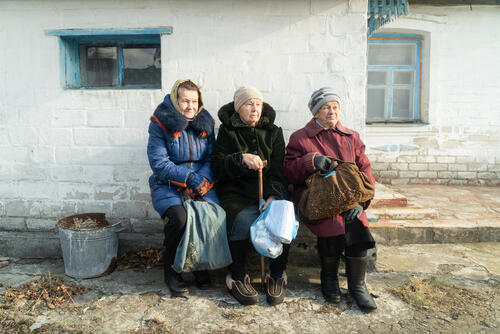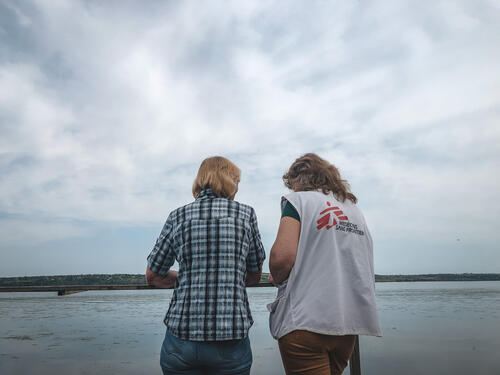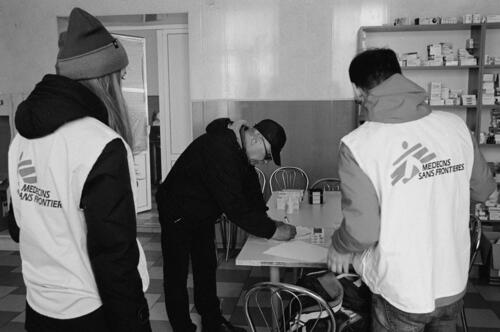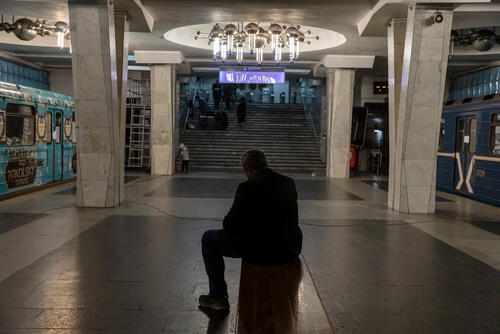The long-running conflict in eastern Ukraine has continued since 2014. In the Donetsk region, many have left villages and towns near the fighting but some people either do not want to leave or cannot leave. A lot of them are elderly people, many with chronic diseases such as asthma, diabetes and heart disease. Yet people often find it difficult to access healthcare. In some villages, volunteers supported by Médecins Sans Frontières (MSF) are providing transport and health information to help people get the medical care they need.
Everyone was waiting for the end of the conflict and thought it was temporary, but [the end] did not come, it does not come.Oksana Kovalenko, a volunteer working with MSF.
“There was before and after. Groceries became unavailable abruptly. Medical services became unavailable. The kindergarten and school shut down. Everything [changed] in the blink of an eye,” says Valentyna Naumovychm, a volunteer working with MSF.
“[Now] the village is dying out. Mostly the elderly remain. Those who could leave, left. There were 500 people here, 300 households. Now there are 136 people and 75 households.” Those who stayed behind, she adds, never forget about the conflict: “We are constantly reminded of it.”
Volunteers like Valentyna provide a crucial lifeline for people living in villages close to the conflict. Incidents of shelling and shooting happen almost every day in some of these areas. Around many villages, landmines remain a serious threat. Partly as a result of these risks, transport systems remain disrupted and many services are simply not available. This often includes medical services.
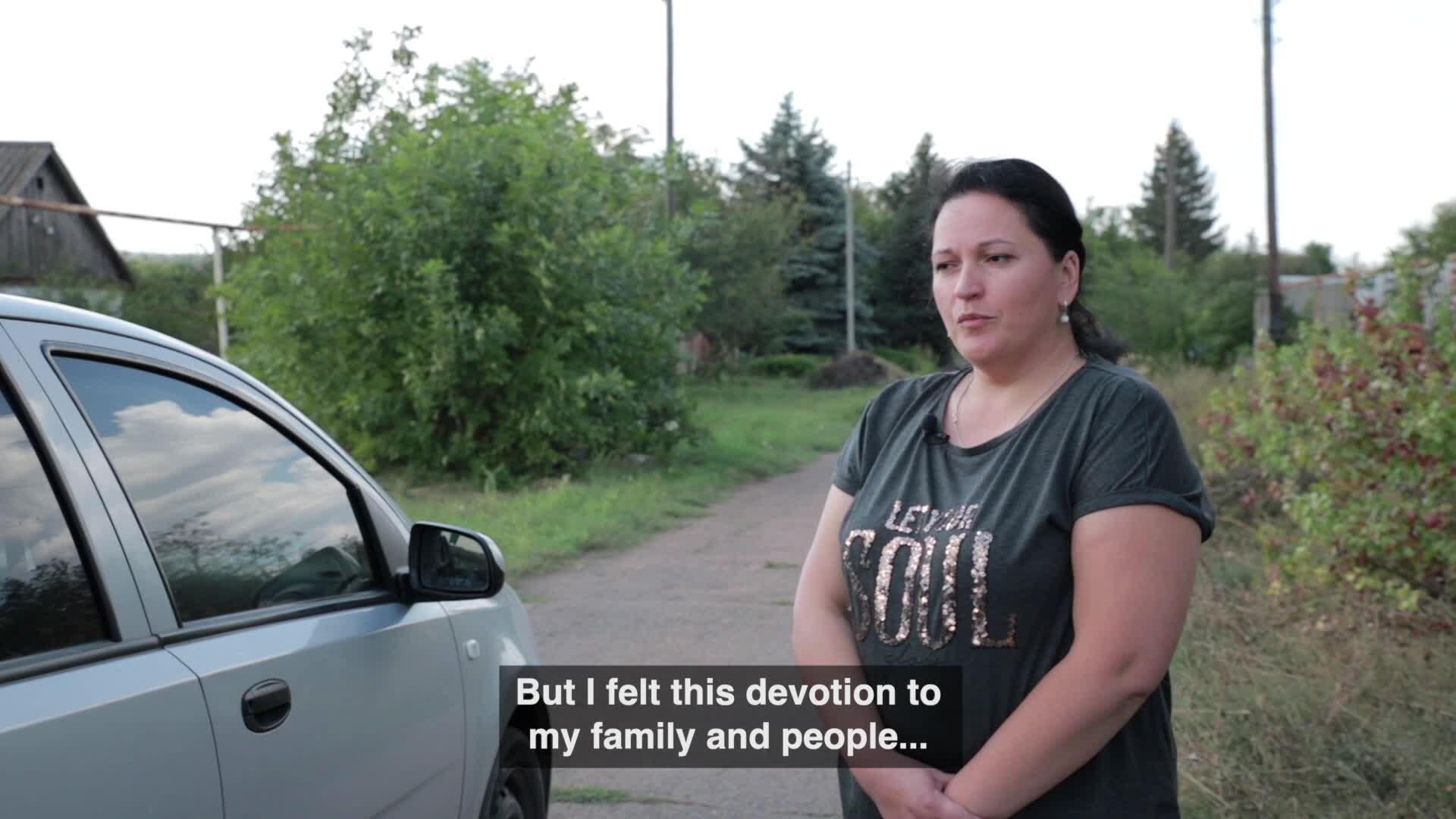
Oksana's story
“Prices in our pharmacy are a little bloated. We are located farther from ‘civilisation’, near the contact line, [so] not all suppliers agree to come here,” says Hennadiy Shapovalov, another volunteer working with MSF in the community.
In a nearby village, local volunteer Oksana Kovalenko says, “There is a doctor in our area but the outpatient clinic is five kilometres away. Busses stopped coming here. How can these elderly people get to see a doctor?”
“When we started the project, we found that we have needs and we have services, but no connection between the needs and the services,” says Anastasiia Zhydkova, MSF activity manager. Our teams have also heard about local people who are using their own resources to help people in their villages.
Some of them bring clean drinking water to elderly residents, others organised recreational activities. One person set up a laundry service in a village where households didn’t have running water.
People can’t afford to go to hospital. If I didn’t have this ancient car, I wouldn’t be able to get to hospital either!Tetiana Karadzeli, volunteer.
We began collaborating with local volunteers in 2020 to form village health teams (VHTs) who could provide health information, transport patients to clinics and hospitals, and collect and deliver prescription medications.
The programme soon expanded to include other villages.“We hung up an announcement saying, ‘A health team is working. We can provide some services, such as driving you to a family doctor. Or in case a doctor refers you there, driving you to hospital,’” says Oleksander Serheyev, a volunteer working with MSF.
“Generally, we drive and assist those who don’t have their own vehicles. After a visit to a family doctor where they receive a prescription, we drive them to a pharmacy. In these villages, we are all like relatives,” he says.
In the space of just three months between July and September 2021, these volunteers provided more than 500 trips to clinics, hospitals and for medical tests, for people who would otherwise have struggled to reach the medical care they needed. During the same period, almost 800 prescriptions were filled and lifesaving medication was delivered to 270 patients.
“People can’t afford to go to hospital. If I didn’t have this ancient car, I wouldn’t be able to get to hospital either!” says Tetiana Karadzeli, another volunteer working with MSF.
With a little support from our teams, health team volunteers are able to provide transport services, along with accurate, up-to-date health information, free of charge to vulnerable people in their communities.
MSF has worked in Ukraine since 1999, working on HIV/AIDS, TB in prisons, hepatitis C and providing direct medical and humanitarian assistance to people affected by the conflict in eastern Ukraine. In Donetsk region, MSF works with volunteers to support community-led solutions to improve healthcare access, as well as working on mental health. MSF provides training and support for doctors and nurses in four ambulatories [health centres] and 11 FAPs [village health points].



